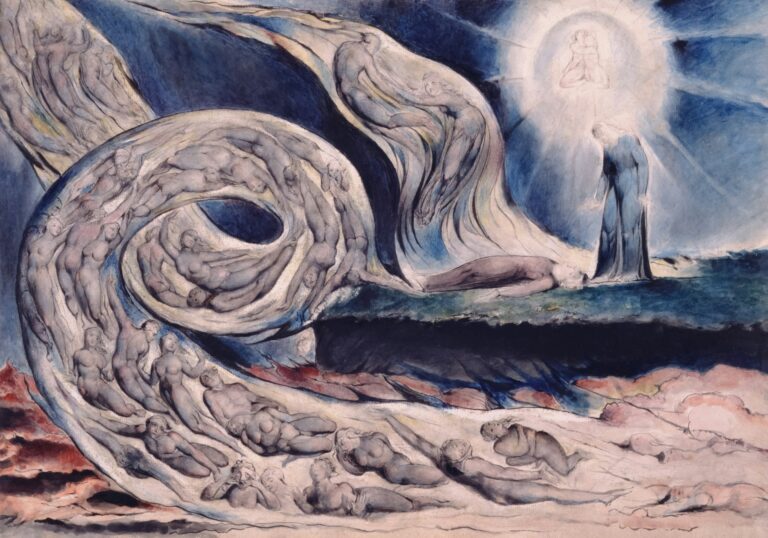In this article, we will start with a general list of the parables of Jesus that we can find throughout the Bible. Later, we will end with an analysis of our top ten parables.
A List Of Parables in Matthew
- The Parable of the Sower (Matthew 13:3-9, 18-23)
- The Parable of the Weeds (Tares) (Matthew 13:24-30, 36-43)
- The Parable of the Mustard Seed (Matthew 13:31-32)
- The Parable of the Yeast (Leaven) (Matthew 13:33)
- The Parable of the Hidden Treasure (Matthew 13:44)
- The Parable of the Pearl of Great Price (Matthew 13:45-46)
- The Parable of the Net (Matthew 13:47-50)
- The Parable of the Householder (Matthew 13:52)
- The Parable of the Lost Sheep (Matthew 18:12-14)
- The Parable of the Unmerciful Servant (Matthew 18:23-35)
- The Parable of the Workers in the Vineyard (Matthew 20:1-16)
- The Parable of the Two Sons (Matthew 21:28-32)
- The Parable of the Wicked Tenants (Matthew 21:33-46)
- The Parable of the Wedding Banquet (Matthew 22:1-14)
- The Parable of the Fig Tree (Matthew 24:32-35)
- The Parable of the Ten Virgins (Matthew 25:1-13)
- The Parable of the Talents (Matthew 25:14-30)
- The Parable of the Sheep and the Goats (Matthew 25:31-46)
Parables in Mark
- The Parable of the Sower (Mark 4:3-9, 13-20)
- The Parable of the Lamp on a Stand (Mark 4:21-25)
- The Parable of the Growing Seed (Mark 4:26-29)
- The Parable of the Mustard Seed (Mark 4:30-32)
- The Parable of the Wicked Tenants (Mark 12:1-12)
- The Parable of the Fig Tree (Mark 13:28-31)
Parables in Luke
- The Parable of the New Cloth and the New Wineskins (Luke 5:36-39)
- The Parable of the Two Debtors (Luke 7:41-43)
- The Parable of the Sower (Luke 8:4-15)
- The Parable of the Lamp on a Stand (Luke 8:16-18)
- The Parable of the Good Samaritan (Luke 10:25-37)
- The Parable of the Friend at Midnight (Luke 11:5-8)
- The Parable of the Rich Fool (Luke 12:16-21)
- The Parable of the Watchful Servants (Luke 12:35-40)
- The Parable of the Faithful and Wise Manager (Luke 12:42-48)
- The Parable of the Barren Fig Tree (Luke 13:6-9)
- The Parable of the Mustard Seed (Luke 13:18-19)
- The Parable of the Yeast (Leaven) (Luke 13:20-21)
- The Parable of the Great Banquet (Luke 14:15-24)
- The Parable of the Cost of Discipleship (Luke 14:28-33)
- The Parable of the Lost Sheep (Luke 15:3-7)
- The Parable of the Lost Coin (Luke 15:8-10)
- The Parable of the Prodigal Son (Luke 15:11-32)
- The Parable of the Shrewd Manager (Luke 16:1-9)
- The Parable of the Rich Man and Lazarus (Luke 16:19-31)
- The Parable of the Persistent Widow (Luke 18:1-8)
- The Parable of the Pharisee and the Tax Collector (Luke 18:9-14)
- The Parable of the Ten Minas (Luke 19:11-27)
- The Parable of the Wicked Tenants (Luke 20:9-19)
- The Parable of the Fig Tree (Luke 21:29-33)
These parables offer timeless lessons about God’s Kingdom, our relationships with each other, and the nature of faith and righteousness. Through these stories, Jesus communicated profound truths in a way that was accessible to everyone, using everyday situations and familiar concepts.
Below here, we have the Top Ten parables of Jesus explained.
Top Ten Parables Of Jesus
The parables of Jesus are some of the most profound teachings in the New Testament. They are simple stories with deep spiritual truths, often drawn from everyday life. As we explore the parables, we can uncover the lessons Jesus wanted us to learn about the Kingdom of God and how we should live.
The Parable of the Sower
One of the most well-known parables is the Parable of the Sower in Matthew 13:3-9 and Luke 8:5-8. Jesus describes a sower who scatters seeds, which fall on different types of ground. Some seeds fall by the wayside and are eaten by birds. Others fall on stony ground, spring up quickly, but wither away because they have no root. Some seeds fall among thorns, which choke them. Finally, some seeds fall on good ground and produce a plentiful harvest.
Jesus explains this parable in Matthew 13:18-23. The seed represents the word of God. The different types of ground represent the hearts of those who hear the word. The wayside represents those who hear the word but do not understand it, and the devil snatches it away. The stony ground represents those who receive the word with joy but fall away when trials come because they have no root. The thorny ground represents those who hear the word but are choked by life’s worries, riches, and pleasures. The good ground represents those who hear the word, understand it, and bear fruit.
This parable teaches us about the importance of how we receive God’s word. We must strive to be like the good ground, ready to receive and act upon God’s teachings, producing a fruitful life.
The Parable of the Good Samaritan
In Luke 10:25-37, Jesus tells the Parable of the Good Samaritan. A lawyer asks Jesus, “Master, what shall I do to inherit eternal life?” Jesus responds by asking him what is written in the law. The lawyer answers, “Thou shalt love the Lord thy God with all thy heart, and with all thy soul, and with all thy strength, and with all thy mind; and thy neighbour as thyself.” Jesus tells him he has answered correctly but then asks, “And who is my neighbour?”
Jesus then tells the story of a man who is beaten and left half-dead by robbers. A priest and a Levite, both religious figures, pass by without helping. However, a Samaritan, despised by the Jews, stops and cares for the man, tending his wounds and paying for his stay at an inn.
Jesus asks, “Which now of these three, thinkest thou, was neighbour unto him that fell among the thieves?” The lawyer answers, “He that shewed mercy on him.” Jesus tells him, “Go, and do thou likewise.”
This parable teaches us about the nature of true neighborly love. It transcends social, ethnic, and religious boundaries. We are called to show mercy and compassion to all, reflecting God’s love in our actions.
The Parable of the Prodigal Son
The Parable of the Prodigal Son in Luke 15:11-32 is another powerful teaching of Jesus. A man has two sons. The younger son asks for his inheritance and leaves home. He squanders his wealth in reckless living. When a famine strikes, he finds himself in dire need, feeding pigs and longing to eat their food.
The son decides to return home, repentant and willing to be treated as a hired servant. His father, seeing him from afar, runs to him, embraces him, and orders a celebration, saying, “For this my son was dead, and is alive again; he was lost, and is found.”
The elder son, who stayed and worked faithfully, becomes angry at the celebration for his brother. The father explains, “Son, thou art ever with me, and all that I have is thine. It was meet that we should make merry, and be glad: for this thy brother was dead, and is alive again; and was lost, and is found.”
This parable reveals God’s immense love and mercy. It shows us that no matter how far we stray, God is always ready to forgive and welcome us back. It also challenges us to embrace this same spirit of forgiveness and compassion towards others.
The Parable of the Talents
In Matthew 25:14-30, Jesus tells the Parable of the Talents. A man going on a journey entrusts his servants with his wealth. One receives five talents, another two, and another one, each according to their ability. The first two servants invest their talents and double them. The third servant, fearing his master, buries his talent in the ground.
Upon his return, the master commends the first two servants for their faithfulness and rewards them. However, he rebukes the third servant for his laziness and fear, taking away his talent and giving it to the one with ten talents.
This parable teaches us about using the gifts and opportunities God gives us. We are called to be faithful and diligent, using our abilities to further God’s kingdom. Fear and inaction lead to loss, but faithfulness leads to reward.
The Parable of the Mustard Seed
In Matthew 13:31-32 and Luke 13:18-19, Jesus tells the Parable of the Mustard Seed. He compares the Kingdom of Heaven to a mustard seed, the smallest of all seeds, which grows into a large tree where birds come to nest.
This parable illustrates the growth of God’s kingdom from small beginnings to great expanses. It encourages us to have faith in the seemingly small and insignificant, trusting that God can bring about great things.
The Parable of the Lost Sheep
In Luke 15:3-7 and Matthew 18:12-14, Jesus tells the Parable of the Lost Sheep. A shepherd has one hundred sheep and loses one. He leaves the ninety-nine in the wilderness to search for the lost one. When he finds it, he rejoices more over the one lost sheep than over the ninety-nine that did not go astray.
Jesus concludes, “I say unto you, that likewise joy shall be in heaven over one sinner that repenteth, more than over ninety and nine just persons, which need no repentance.”
This parable shows God’s relentless pursuit of the lost. It emphasizes the value of every individual and the joy in heaven over one sinner’s repentance.
The Parable of the Unforgiving Servant
In Matthew 18:23-35, Jesus tells the Parable of the Unforgiving Servant. A king forgives his servant a massive debt. However, this servant then refuses to forgive a fellow servant a much smaller debt and has him thrown into prison.
When the king hears of this, he is angry and delivers the unforgiving servant to the jailers until he can pay his debt. Jesus ends the parable with a warning: “So likewise shall my heavenly Father do also unto you, if ye from your hearts forgive not every one his brother their trespasses.”
This parable teaches us the importance of forgiveness. We must forgive others as God has forgiven us. Holding onto unforgiveness brings judgment upon ourselves.
The Parable of the Rich Fool
In Luke 12:16-21, Jesus tells the Parable of the Rich Fool. A rich man’s land produces abundantly. He decides to build bigger barns to store his surplus and live a life of ease. However, God says to him, “Thou fool, this night thy soul shall be required of thee: then whose shall those things be, which thou hast provided?”
Jesus concludes, “So is he that layeth up treasure for himself, and is not rich toward God.”
This parable warns us about the dangers of greed and self-reliance. We are reminded that true wealth lies in being rich toward God, not in material possessions.
The Parable of the Pharisee and the Publican
In Luke 18:9-14, Jesus tells the Parable of the Pharisee and the Publican. A Pharisee and a tax collector go to the temple to pray. The Pharisee prays proudly, thanking God that he is not like other men and boasting of his religious deeds. The tax collector, however, stands at a distance, beats his breast, and says, “God be merciful to me a sinner.”
Jesus says the tax collector, not the Pharisee, went home justified. “For every one that exalteth himself shall be abased; and he that humbleth himself shall be exalted.”
This parable teaches us about humility and the right attitude in prayer. God values a humble heart over self-righteousness.
The Parable of the Wise and Foolish Builders
In Matthew 7:24-27, Jesus tells the Parable of the Wise and Foolish Builders. The wise man builds his house on the rock, and when the rain, floods, and winds come, the house stands firm. The foolish man builds his house on the sand, and when the storm comes, the house falls with a great crash.
Jesus explains that those who hear His words and act on them are like the wise builder. Those who hear and do not act are like the foolish builder.
This parable emphasizes the importance of putting Jesus’ teachings into practice. A strong foundation in His words ensures stability in the storms of life.
Conclusion
The parables of Jesus are rich with lessons for us. They challenge us to examine our hearts, live faithfully, and align ourselves with God’s kingdom. Each parable provides a unique insight into how we should live and relate to God and others. As we meditate on these stories, let’s strive to embody their truths in our daily lives.
(Also: This article pairs well with The Life And Teachings Of Jesus Christ)






